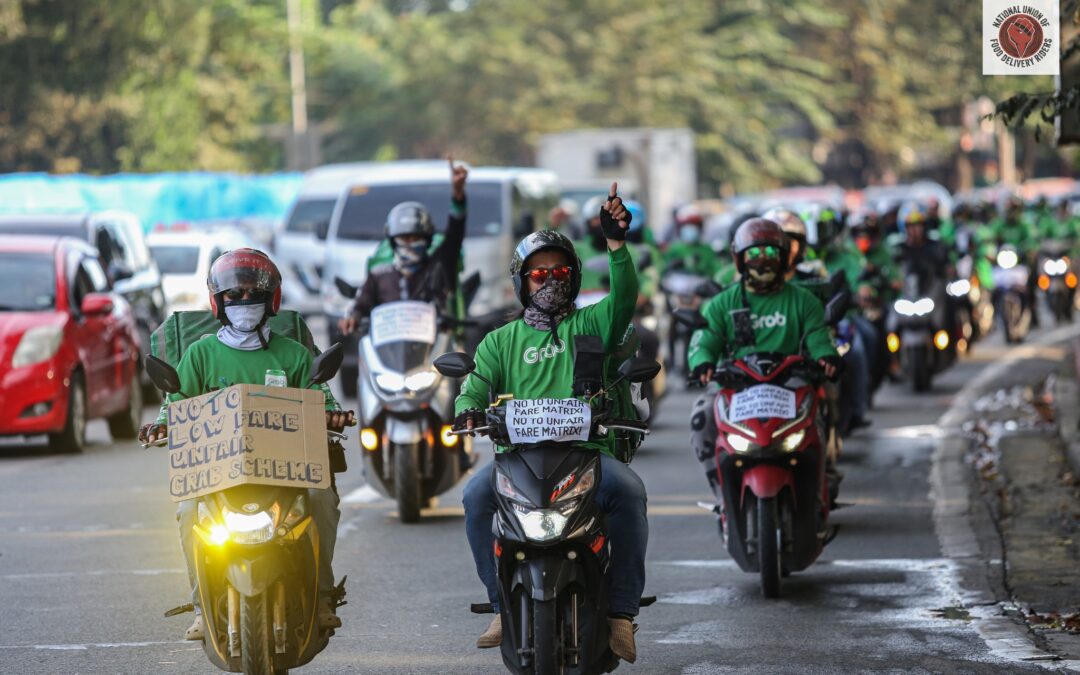In the Philippines, 200 Grab Food Delivery Riders, through the National Union of Food Delivery Riders (RIDERS-SENTRO), waged a one-day strike October 25 to protest a fare decrease scheduled to start that day.
Grab’s new rate will reduce the base fare from 45 pesos to 35 pesos per order (from 79 cents to 61 cents), and the per kilometer compensation from 10 pesos to 7 pesos (from 18 cents to 12 cents).
The drivers turned off their apps and held a unity ride around the Quezon Memorial Circle in metro Manila, with signs on their motorcycle delivery boxes demanding higher fares and fairly calculated compensation. Grab riders also are seeking comprehensive insurance coverage, social protections and union recognition.
“If the goal of this new fare matrix is to ease the burden on Grab’s customers, it should not come at the expense of the platform’s riders,” Philippines Sen. Risa Hontiveros said in a video statement supporting the delivery riders.
The rally is the second in a week, with more than 80 drivers and their union protesting on October 19 at the Boy Scout Circle in Metro Manila.
Some riders who took part in the rallies reported that their Grab accounts were suspended or terminated, and RIDERS-SENTRO is planning legal action seeking to reinstate them. Several drivers in Pampanga were unjustly fired late last year following a worker rights rally they attended as drivers formed the Pampanga chapter of the National Union of Delivery Riders (RIDERS). They appealed the decision to the National Labor Relations Commission (NLRC) and the case is ongoing.
App-Based Drivers Advocate for Safe Jobs, Better Wages
Despite the challenges helping delivery drivers form unions—drivers have no single workplace and platform companies refuse to acknowledge they are employers so as to avoid fair compensation—RIDERS-SENTRO, a Solidarity Center partner, has made big gains.
(SENTRO General Secretary Josua Mata and John Jay Chan, a driver and union organizer, discuss how they are mobilizing drivers on the latest My Boss Is a Robot Solidarity Center Podcast episode.)
In just over a year, the union established four chapters of delivery drivers in multiple cities and islands and is organizing drivers in another 15 cities. Drivers are also engaging with local and national governments and, together with their union, crafted a Charter of Rights that lists basic rights for gig workers: a minimum wage, a written contract, health or accident insurance, and access to the country’s social security services. The Senate is now considering the bill.
Drivers also successfully advocated for a local ordinance in Cebu City to create free outdoor “riders’ hubs” in commercial outlets with seating and parking to offer drivers shelter from heat and rain.

